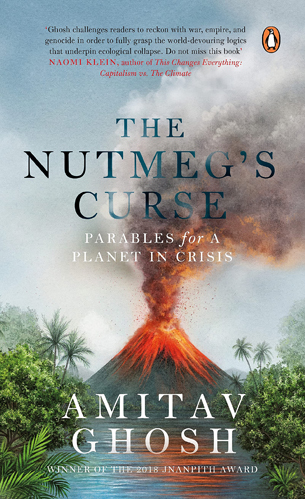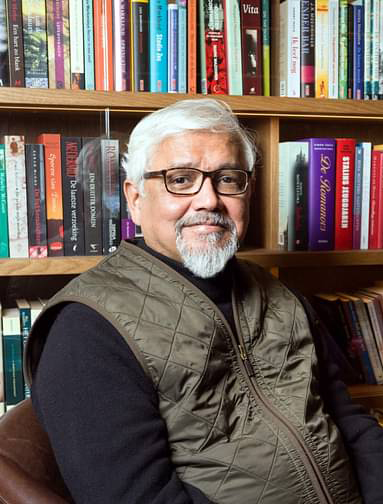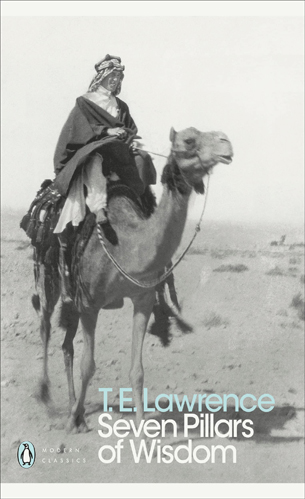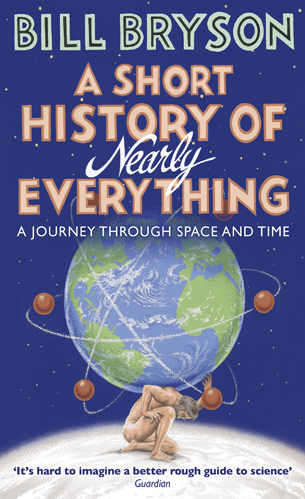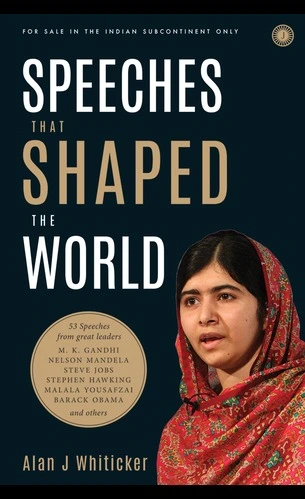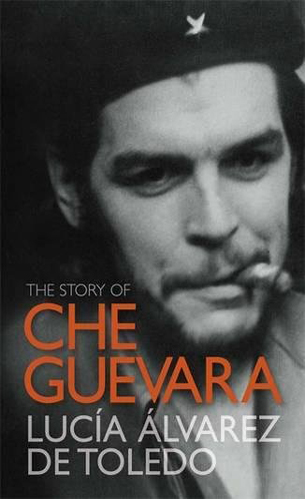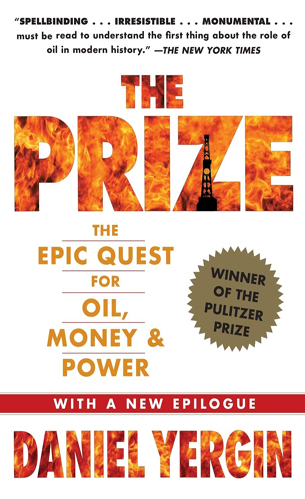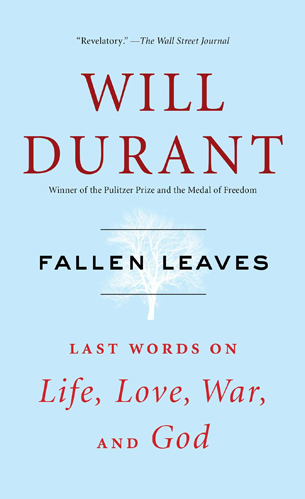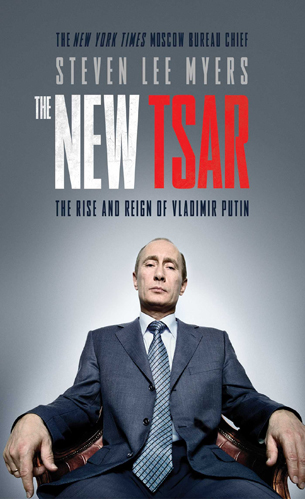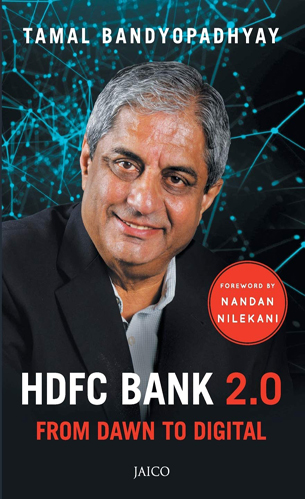Category
- Discounted Books
- English Book Bundles
- University Magazines
- சிறுவர்களுக்கான புத்தகங்கள்
- Children Books
- English Books
- Current Affairs
- Military & Intelligence
- Short Stories
- Fiction
- Poetry
- Environment & Nature
- Science
- Medicine
- Linguistics
- Atheism & Agnosticism
- (Auto)Biography & Memoir
- Business & Management
- Creativity
- Economics
- Education & Research
- Health & Nutrition
- History
- Humor
- Love & Relationships
- Parenting
- Personal Development
- Personal Finance
- Philosophy
- Politics
- War
- Psychology
- Religion & Spirituality
- Society & Culture
- Sports
- Travel & Adventure
- Technology & the Future
- True Crime
- Women Empowerment
- தமிழ் Books
- Book Bundles ( தமிழ் )
- சட்டம்
- இயற்கை
- கட்டுரை
- கணிதம்
- பயணக்குறிப்புகள்
- விவசாயம்
- அரசியல்
- ஆரோக்கியம்
- உளவியல்
- புனைவு
- காதல் மற்றும் உறவு
- சமூகவியல்
- சுயசரிதைகள் மற்றும் நினைவுகள்
- சுயமுன்னேற்றம்
- தத்துவஞானம்
- தொழில்நுட்பம் & எதிர்காலம்
- பொருளாதாரம்
- போர்
- பணம்
- மதம் & ஆன்மீகம்
- வணிகம் & மேலாண்மை
- வரலாறு
- விஞ்ஞானம் & பிரபல அறிவியல்
- விளையாட்டு
- சினிமா
- கவிதைகள்
- குழந்தை வளர்ப்பு
- குற்றம்
- மருத்துவம்
- மொழி
Product categories
- Children Books
- Discounted Books
- English Book Bundles
- English Books
- (Auto)Biography & Memoir
- Atheism & Agnosticism
- Business & Management
- Creativity
- Current Affairs
- Economics
- Education & Research
- Environment & Nature
- Fiction
- Health & Nutrition
- History
- Humor
- Linguistics
- Love & Relationships
- Medicine
- Military & Intelligence
- Parenting
- Personal Development
- Personal Finance
- Philosophy
- Poetry
- Politics
- Psychology
- Religion & Spirituality
- Science
- Short Stories
- Society & Culture
- Sports
- Technology & the Future
- Travel & Adventure
- True Crime
- War
- Women Empowerment
- University Magazines
- சிறுவர்களுக்கான புத்தகங்கள்
- தமிழ் Books
- Book Bundles ( தமிழ் )
- அரசியல்
- ஆரோக்கியம்
- இயற்கை
- உளவியல்
- கட்டுரை
- கணிதம்
- கவிதைகள்
- காதல் மற்றும் உறவு
- குற்றம்
- குழந்தை வளர்ப்பு
- சட்டம்
- சமூகவியல்
- சினிமா
- சுயசரிதைகள் மற்றும் நினைவுகள்
- சுயமுன்னேற்றம்
- தத்துவஞானம்
- தொழில்நுட்பம் & எதிர்காலம்
- பணம்
- பயணக்குறிப்புகள்
- புனைவு
- பொருளாதாரம்
- போர்
- மதம் & ஆன்மீகம்
- மருத்துவம்
- மொழி
- வணிகம் & மேலாண்மை
- வரலாறு
- விஞ்ஞானம் & பிரபல அறிவியல்
- விளையாட்டு
- விவசாயம்
The Nutmeg’s Curse: Parables for a Planet in Crisis
Rs. 2,990.00

Amitav Ghosh
What do you do when the subject matter of life on this planet seems to lack . . . life? Your read The Nutmeg’s Curse, which eschews the leaden language of climate expertise in favor of the re-animating powers of mythology, etymology, and cosmology. Ghosh challenges readers to reckon with war, empire, and genocide in order to fully grasp the world-devouring logics that underpin ecological collapse. We owe a great debt to his brilliant mind, avenging pen, and huge soul. Do not miss this book-and above all, do not tell yourself that you already know its contents, because you don’t. — Naomi Klein, author of This Changes Everything: Capitalism vs. The Climate
In this brilliant book, aflame with insight and moral power, Ghosh shows that in the history of the nutmeg lies the path to our planetary crisis, twisting through the horrors of empire and racial capitalism. The Nutmeg’s Curse brings to life alternative visions of human flourishing in consonance with the rest of nature-and reminds us how great are the vested interests that obstruct them. — Sunil Amrith, author of Unruly Waters
The Nutmeg’s Curse elegantly and audaciously reconceives modernity as a centuries-long campaign of omnicide, against the spirits of the earth, the rivers, the trees, and even the humble nutmeg, then makes an impassioned argument for the keen necessity of vitalist thought and non-human narrative. With sweeping historical perspective and startling insight, Ghosh has written a groundbreaking, visionary call to new forms of human life in the Anthropocene. An urgent and powerful book. — Roy Scranton, author of Learning to Die in the Anthropocene: Reflections on the End of a Civilization
It’s widely recognized that the climate crisis is multi-dimensional, yet American cultural conversations about it are mostly stuck in its scientific, technological, and economic dimensions. In this tour de force, Amitav Ghosh defiantly moves the conversation into the realms of history, politics, and culture, insisting that we will never resolve our planetary crisis until we acknowledge that the “great acceleration” of the past fifty years is part of a larger historical pattern of omnicide. For centuries, the dominant global powers have seen Earth–its plants, its animals, and its non-white peoples–as brute objects: mute, without agency, and available for the taking and killing. The solution to the climate crisis, Ghosh insists, is not injecting particles into the stratosphere to block the sun, or even to build a bevy of solar farms (as important as the latter is). Rather, the solution lies in re-engaging with the vital aspects of life, in all its capaciousness, and in doing so move past our long history of destruction and into true sustainability. — Naomi Oreskes
Out of stock
Notify me when stock available
In this ambitious successor to The Great Derangement, acclaimed writer Amitav Ghosh finds the origins of our contemporary climate crisis in Western colonialism’s violent exploitation of human life and the natural environment.
A powerful work of history, essay, testimony, and polemic, Amitav Ghosh’s new book traces our contemporary planetary crisis back to the discovery of the New World and the sea route to the Indian Ocean. The Nutmeg’s Curse argues that the dynamics of climate change today are rooted in a centuries-old geopolitical order constructed by Western colonialism. At the center of Ghosh’s narrative is the now-ubiquitous spice nutmeg. The history of the nutmeg is one of conquest and exploitation—of both human life and the natural environment. In Ghosh’s hands, the story of the nutmeg becomes a parable for our environmental crisis, revealing the ways human history has always been entangled with earthly materials such as spices, tea, sugarcane, opium, and fossil fuels. Our crisis, he shows, is ultimately the result of a mechanistic view of the earth, where nature exists only as a resource for humans to use for our own ends, rather than a force of its own, full of agency and meaning.
Writing against the backdrop of the global pandemic and the Black Lives Matter protests, Ghosh frames these historical stories in a way that connects our shared colonial histories with the deep inequality we see around us today. By interweaving discussions on everything from the global history of the oil trade to the migrant crisis and the animist spirituality of Indigenous communities around the world, The Nutmeg’s Curse offers a sharp critique of Western society and speaks to the profoundly remarkable ways in which human history is shaped by non-human forces.
About the Author
Amitav Ghosh was born in Calcutta in 1956. He grew up in Bangladesh, Sri Lanka and India. He studied at the universities of Delhi and Oxford and published the first of eight novels, The Circle of Reason, in 1986. The first novel in his Ibis trilogy, Sea of Poppies, was shortlisted for the Man Booker Prize. He received the Jnanpith Award in 2018.
- Hardcover : 350 pages
Related products
-
Seven Pillars of Wisdom
Rs. 3,390.00Original price was: Rs. 3,390.00.Rs. 2,390.00Current price is: Rs. 2,390.00.or 3 X Rs.796.67 with Read more
Read moreT. E. Lawrence
Seven Pillars of Wisdom is the autobiographical account of T.E. Lawrence – also known as ‘Lawrence of Arabia’ – of his service in the Arab Revolt during the First World War, published in Penguin Modern Classics. Although ‘continually and bitterly ashamed’ that the Arabs had risen in revolt against the Turks as a result of fraudulent British promises of self-rule, Lawrence led them in a triumphant campaign that revolutionized the art of war. Seven Pillars of Wisdom recreates epic events with extraordinary vividness.
‘Round this tent-pole of a military chronicle, Lawrence has hung an unexampled fabric of portraits, descriptions, philosophies, emotions, adventures, dreams’ — E. M. Forster
‘I am not much of a hero-worshipper, but I could have followed T.E. Lawrence over the edge of the world’ — John Buchan, author of The Thirty-Nine Steps
-
A Short History of Nearly Everything: A Journey through Space and Time
Rs. 3,490.00or 3 X Rs.1,163.33 with Read more
Read moreBill Bryson
- Best-Selling Popular Science book of the 21st Century
- Samuel Johnson Prize for Non-Fiction Nominee (2004)
- EU Descartes Prize for science communication (2005)
- J. A. Hollon palkinto Winner (2006)
- The Aventis Prizes for Science Books for best general science book (2004)
The ultimate eye-opening journey through time and space, A Short History of Nearly Everything is the biggest-selling popular science book of the 21st century and has sold over 2 million copies.
‘Truly impressive…It’s hard to imagine a better rough guide to science.’ Guardian
‘A travelogue of science, with a witty, engaging, and well-informed guide‘ The Times
Mr Bryson has a natural gift for clear and vivid expression. I doubt that a better book for the layman about the findings of modern science has been written ― Sunday Telegraph
A fascinating idea, and I can’t think of many writers, other than Bryson, who would do it this well. It’s the sort of book I would have devoured as a teenager. It might well turn unsuspecting young readers into scientists. And the famous, slightly cynical humour is always there ― Evening Standard
A genuinely useful and readable book. There is a phenomenal amount of fascinating information packed between its covers … A thoroughly enjoyable, as well as educational, experience. Nobody who reads it will ever look at the world around them in the same way again ― Daily Express
Of course, there are people much better qualified than Bill Bryson to attempt a project of this magnitude. None of them, however, can write fluent Brysonese, which, as pretty much the entire Western reading public now knows, is an appealing mixture of self-deprecation, wryness and punnery ― Spectator
The very book I have been looking for most of my life… Bryson wears his knowledge with aplomb and a lot of very good jokes ― Daily Mail
-
Speeches that Shaped the World
Rs. 1,690.00or 3 X Rs.563.33 with Read more
Read moreAlan J. Whiticker
53 Speeches from great leaders M. K. GANDHI, NELSON MANDELA, STEVE JOBS, STEPHEN HAWKING, MALALA YOUSAFZAI, BARACK OBAMA and others. The passing of time allows many speeches to take on a deeper meaning and poignancy. Others have become an iconic part of our times.
Alan J. Whiticker’s Speeches that Shaped the World is a collection of the most potent and memorable speeches throughout history. These speeches highlight recurring themes such as politics and power, war and peace, civil rights and human rights. What they all have in common is the power to inspire—emotionally, politically and socially.In this brilliant collection, many of history’s greatest orators and pivotal moments are featured. These speeches shaped and changed the world. Different eras and many nations are represented, with several speeches from famous women—speeches of clarity and hope. Along with famous names like John F. Kennedy, Martin Luther King, Franklin D. Roosevelt, Winston Churchill, Mahatma Gandhi, Nelson Mandela, Margaret Thatcher and Hillary Clinton there are also lesser known orators who are remembered for making their mark on history.
-
The Story of Che Guevara
Rs. 2,890.00or 3 X Rs.963.33 with Read more
Read moreLucía Álvarez de Toledo
‘Lucía Álvarez de Toledo captures the essence of Che the man with a heart-warming and inspirational text … a most rewarding book, whose significance should not be underestimated’ ― Morning Star
An accessible biography of one of the most influential figures of recent times based on new, original research.
Che Guevara is something of a symbol in the West. But for the rest of the world he is different: a charismatic revolutionary who redrew the political map of Latin America and gave hope to those resisting colonialism everywhere. In The Story of Che Guevara Lucía Álvarez de Toledo follows Che from his birth in Rosario and his early years in his parent’s maté plantation, to his immortal motorcycle journeys across South America, his role at the heart of Castro’s new Cuban government, and through to the unforgiving jungle that formed the backdrop to his doomed campaigns in the Congo and Bolivia.
Based on interviews with Che’s family and those who knew him intimately, this is an accessible biography that concentrates on the man rather than the icon. With the political developments in Latin America in the twenty-first century, his influence can be seen to be even greater than it was during his lifetime and The Story of Che Guevara is a perfect introduction to an extraordinary man.
-
The Splendid and the Vile: A Saga of Churchill, Family and Defiance During the Blitz
Rs. 3,890.00Original price was: Rs. 3,890.00.Rs. 2,990.00Current price is: Rs. 2,990.00.or 3 X Rs.996.67 with Read more
Read moreErik Larson
- #1 New York Times Bestseller
- Goodreads Choice Award Nominee for History & Biography (2020)
‘Fresh, fast and deeply moving … Larson’s deft portraits show the essential connection that words created between the powerful and the powerless, capturing the moments that defined life for millions struggling to survive the decisions of a few’ New York Times Book Review
‘If you want to look back at a really important part of history with fresh eyes, this is the book for you … Gripping and wonderful’ Alan Carr
‘There are countless books about World War II, but there’s only one Erik Larson … There are many things to admire about The Splendid and the Vile, but chief among them is Larson’s electric writing. The book reads like a novel, and even though everyone (hopefully) knows how the war ultimately ended, he keeps the reader turning the pages with his gripping prose.’ NPR
‘A particularly gripping read, written with bounce and brio. Larson pulls together vivid vignettes – some moving, some amusing, a few grim … A fine writer of narrative nonfiction history.’ Robbie Millen, Times
‘A captivating history of Churchill’s heroic year, with more than the usual emphasis on his intimates.’ Kirkus Reviews (starred review)
‘This book is peppered with eye-popping details … A deeply compelling work of history … Without resorting to heroism, it makes one long powerfully for real leadership’ Lit Hub
-
Sapiens: A Brief History of Humankind
Rs. 3,590.00or 3 X Rs.1,196.67 with Read more
Read moreYuval Noah Harari
- Royal Society of Biology General Book Prize Nominee (2015)
- **ONE OF THE GUARDIAN‘S 100 BEST BOOKS OF THE 21st CENTURY**
- **THE MULTI-MILLION COPY BESTSELLER**
- #1 New York Times Bestseller
- J. A. Hollon palkinto (2017)
- The Summer Reading Pick for President Barack Obama, Bill Gates, and Mark Zuckerberg.
“I would recommend this book to anyone interested in a fun, engaging look at early human history… You’ll have a hard time putting it down” –Bill Gates
Interesting and provocative… It gives you a sense of how briefly we’ve been on this Earth ― Barack Obama
Jaw-dropping from the first word to the last… It may be the best book I’ve ever read ― Chris Evans
Tackles the biggest questions of history and the modern world… Written in unforgettably vivid language ― Jared Diamond
Startling… It changes the way you look at the world ― Simon Mayo
One of the best books I’ve read recently… Gives an excellent overview of how our species has developed ― Lily Cole
Sweeps the cobwebs out of your brain… Radiates power and clarity, making the world strange and new ― Sunday Times
Sapiens is packed with heretical thinking and surprising facts. This riveting, myth-busting book cannot be summarised in any detail; you will simply have to read it — John Gray ― Financial Times
-
The Prize: The Epic Quest for Oil, Money & Power
Rs. 6,790.00Original price was: Rs. 6,790.00.Rs. 5,990.00Current price is: Rs. 5,990.00.or 3 X Rs.1,996.67 with Read more
Read moreDaniel Yergin
Winner of the Pulitzer Prize and hailed as “the best history of oil ever written” by Business Week, Daniel Yergin’s “spellbinding…irresistible” (The New York Times) account of the global pursuit of oil, money, and power addresses the ongoing energy crisis.
“Splendid and epic history of oil…. The story is brilliantly told…with its remarkable cast of characters.” — The Wall Street Journal
“Impassioned and riveting…only in the great epics of Homer will readers regularly run into a comparable string of larger-than-life swashbucklers and statesmen, heroes and villains.” — San Francisco Examiner
“A masterly narrative…The Prize portrays the interweaving of national and corporate interests, the conflicts and stratagems, the miscalculations, the follies, and the ironies.” — James Schlesinger, former U.S. Secretary of Defense and U.S. Secretary of Energy
“Spellbinding…irresistible…monumental…must be read to understand the first thing about the role of oil in modern history.” — The New York Times
-
Fallen Leaves: Last Words on Life, Love, War, and God
Rs. 2,790.00Original price was: Rs. 2,790.00.Rs. 2,290.00Current price is: Rs. 2,290.00.or 3 X Rs.763.33 with Read more
Read moreWill Durant
Praised as a “revelatory” book by The Wall Street Journal, this is the last and most personal work of Pulitzer Prize–winning author and historian Will Durant, discovered thirty-two years after his death.
“Fallen Leaves is in some ways a slight book. But it is also a revelatory one. Most of Durant’s work is about the thoughts and actions of others. Fallen Leaves is very much about the thoughts of Will durant concerning—well, almost everything. You’ll find short essays on childhood, old age, death, war, politics, capitalisn, art, sex, God and morality. … Above all, Fallen Leaves is a portrait of a sensibility. … Durant was a remarkable specimen of that nearly extinct species, a civilized liberal of wide learning and even wider sympathy for the fundamentals of human aspiration.” ― The Wall Street Journal
“Short but persuasive commentaries on a diversity of topics from a respected scholar of humanity.” ― Kirkus Reviews
“Some passages, such as his observations on youth and middle age, are personal and specific, while others, such as his ruminations on the existence of God, border on philosophy. . . . [And others] still carry a beneficial sting, such as his thoughts on war and nationalism and his plea for racial harmony (Durant’s civil rights advocacy dated back to 1914). . . . a thought-provoking array of opinions.” ― Publishers Weekly
“Some of his musings are provocative, even outrageous…this is a work that demands we think, and it is a worthy conclusion to a long and distinguished career.” ― Booklist
-
The New Tsar: The Rise and Reign of Vladimir Putin
Rs. 2,690.00or 3 X Rs.896.67 with Read more
Read moreSteven Lee Myers
“Steven Lee Myers’s The New Tsar is not the first biography of Putin, but it is the strongest to date. Judicious and comprehensive, it pulls back the veil… from one of the world’s most secretive leaders. What is most striking, given the aura of steely consistency that Putin cultivates, is how he has changed over the years…. The great strength of Myers’s book is the way it shows how chance events and Putin’s own degeneration gradually cleared the path to the Ukraine crisis… Putin emerges as neither a KGB automaton, nor the embodiment of Russian historical traditions, nor an innocent victim of Western provocations and NATO’s hubris, but rather as a flawed individual who made his own choices at crucial moments and thereby shaped history.” —Daniel Treisman, The Washington Post
“What Steven Lee Myers gets so right in The New Tsar, his comprehensive new biography — the most informative and extensive so far in English — is that at bottom Putin simply feels that he’s the last one standing between order and chaos… What Myers offers is the portrait of a man swinging from crisis to crisis with one goal: projecting strength… A knowledgeable and thorough biography… Putin himself now represents the chaos he so abhors — the chaos that will surely come in his wake.” —Gal Beckerman, The New York Times Book Review
“Combining skilled story telling, psychological examination and political investigation, Steven Lee Myers succeeds brilliantly in this biography of Vladimir Putin. Explaining the dangers that Putin’s Russia may and does pose, Myers effortlessly and expertly guides the reader through the complexities of the Russian Byzantine governing style and the country’s politics and identity. In the end, the book provides one of the most comprehensive answers to a puzzling question: Despite all the changes that Russia has gone through during communism and post-communism, why is it still an empire of the tsar?” —Nina Khrushcheva
“Personalities determine history as much as geography, and there is no personality who has had such a pivotal effect on 21st century Europe as much as Vladimir Putin. The New Tsar is a riveting, immensely detailed biography of Putin that explains in full-bodied, almost Shakespearean fashion why he acts the way he does.” –Robert D. Kaplan
“The reptilian, poker-faced former KGB agent, now Russian president seemingly for life, earns a fair, engaging treatment in the hands of New York Times journalist Myers… [who] clearly knows his material and primary subject… Putin used the perks of power to create a complex system of cronyism and nepotism. Myers shows how Putin convinced everyone that this way of operating was part of the Russian soul and how he perpetuated it through an archaic form of Russian corruption… Myers astutely notes how Putin’s speeches increasingly harkened back to the worst period of the Cold War era’s dictates by Soviet strongmen… A highly effective portrait of a frighteningly powerful autocrat.” –Kirkus (starred review)
-
HDFC Bank 2.0: From Dawn to Digital
Rs. 2,990.00Original price was: Rs. 2,990.00.Rs. 2,690.00Current price is: Rs. 2,690.00.or 3 X Rs.896.67 with Read more
Read moreTamal Bandyopadhyay
“Tamal combines his financial knowledge, eye for detail, and an excellent storytelling style to create a vivid portrait of India’s most valued bank and its path to the future.” –NANDAN NILEKANI, Co-founder and Chairman of Infosys and Founding Chairman of UIDAI
“Tamal has enthusiastically documented the epiphany that HDFC Bank’s leadership had in starting out on their digital journey. India is set for seismic changes to day-to-day banking over the next few years and banks who don’t commit to fully re-engineering their practice around becoming a technology company that delivers real-time, contextual banking experiences will wither on the vine. HDFC Bank has made a solid start on this journey, but the final chapter has not yet been written.” –BRETT KING, Founder, Moven and bestselling author of Bank 4.0
The seeds of change were sown in September 2014, when HDFC Bank MD Aditya Puri went to Silicon Valley to meet the brightest tech minds in the world. By the time he got back, he knew exactly what needed to be done.
It was time for a revolution. Instead of waiting to be disrupted by fintech companies, HDFC Bank went all out to disrupt itself, recasting its role and scope on a scale that has never been attempted before. In one of the biggest transformations ever undertaken in any business, HDFC Bank wants to become a platform facilitating a financial experience.
Tamal Bandyopadhyay chronicles HDFC Bank’s own digital disruption exercise through the very people who drove it, narrating a story that’s as compelling as unique in India’s financial system. With his keen eye for detail, deep knowledge of banking and unparalleled storytelling ability, Bandyopadhyay recounts the journey of India’s most valued lender from a life cycle bank to a lifestyle bank.

